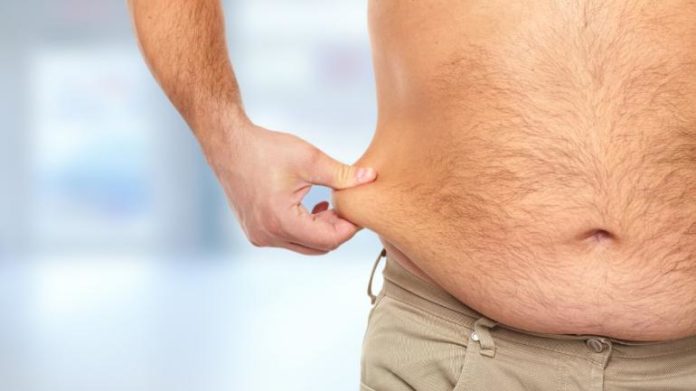Liposuction is one of the most popular cosmetic surgeries that is performed on women to remove fat from certain parts of the body. While liposuction is generally safe, it’s important to consider that there are some risks associated with the procedure. Some are general risks, while others are associated with health conditions and any medication that the patient might be on. To avoid these risks, you must discuss your health conditions and medications with your doctor beforehand so that they can assess your suitability for liposuction. They will ensure that any medication you are taking does not place you at high risk before clearing you for the procedure.
What is liposuction?
Liposuction is a surgical procedure through which fat is removed from certain parts of the body. Doctors use different surgical techniques to remove the fatty tissue under the skin, depending on where you want it taken out. The most common areas are ones with extra bulges, such as your stomach and back area, but other places can be targeted too. It usually takes about an hour or longer for each surgery if just one part of your body needs liposuction done. If both arms or a larger part needs to have this procedure, then doctors will take more time. Liposuction itself doesn’t hurt, but the painkillers that are given to you might cause some discomfort. The recovery time depends on which areas of your body needed work done. For example, if just one arm was taken care of, it won’t take as long to recover compared to both arms being treated at once.
What risks are associated with liposuction?
There are multiple risks associated with liposuction, which means that this procedure is not for everyone. However, the risks are minimal if you have been cleared for the surgery. When doctors do this procedure, it’s because the benefits outweigh the possible problems. For instance, if you have severe weight loss, there is a risk of loose skin that may need to be removed surgically. However, overall, liposuction risks are not alarming. Risks associated with any type of anesthesia include nausea and vomiting after your procedure, as well as breathing difficulties. Some other risks involved with liposuction include:
-Blood clots or hematomas (blood accumulating under your skin)
-Leakage from where incisions were made
-Infection at incision sites
-Allergic reactions to medication given before and after surgery (like antibiotics)
-Bleeding out
-Scarring on the skin.
People who are at high risk include those with obesity, heart disease, or respiratory problems that make it difficult to breathe. This is because liposuction may increase the work needed from their breathing muscles, which might not be strong enough. There is also a risk of bleeding out if you have any blood clotting disorders, so talk to your doctor about this before surgery too. Also, people who take psychoactive drugs need to know there’s an increased risk and discuss this with the doctor.
What risks are associated with antidepressants?
Liposuction is still safe to have done even if you’re on antidepressants as long as they are not linked to serious side effects. While doctors are concerned about medication use that could increase risks, the general feeling is that antidepressants are safe. However, there are some few risks associated with liposuction specific to people who are on antidepressants, which should be discussed with your doctor. If you’re taking any antidepressant medication then there is a risk that it can cause serotonin syndrome, which means too much serotonin in your body at once. It’s extremely rare for this to happen, but stop taking your medications immediately if you feel very sick after surgery and notice nausea, agitation, or confusion. The best way to avoid these possible risks is by talking to a doctor beforehand so that they know what antidepressants you are currently on and whether they affect serotonin levels. Your doctor will advise on what you should do about your medication, before and after the surgery. You should also tell doctors before having liposuction what other types of medications you might be using.
Why is full disclosure important?
It’s important to disclose if you’re on antidepressants before getting liposuction done because, in some cases, it could be dangerous for your health. If there is a risk of serotonin syndrome, then doctors will likely not perform the surgery since they want to avoid any harm that might come from this condition. It can take months or longer after taking medications for these problems to occur, but tell them anyway, so they know about all risks, even those that are rare. Keep in mind, too that some types of antidepressant drugs have more risk than others, which is why you should let doctors know the exact drugs you use.
Remember that any medications or health conditions must be disclosed to your doctor before they assess whether liposuction can safely take place on you. This includes things like allergies, smoking history, and existing medication, especially if it’s related to blood clotting (like Warfarin). Your doctor will then give an assessment as well as inform you about ways in which they can minimize risk during the surgery itself so that everything goes smoothly.
Liposuction has many benefits, such as helping people reduce weight and decrease their body fat percentage over time. However, like any other surgery, liposuction has its risks. Some of these are associated with medication. If you take antidepressants and want to go in for liposuction, you should get clearance from your doctors before getting this procedure done. Don’t change your dosage or stop taking the medication without your doctor’s approval. Additionally, be aware of all other risks associated with the procedure and discuss them with your doctor prior to the procedure.











